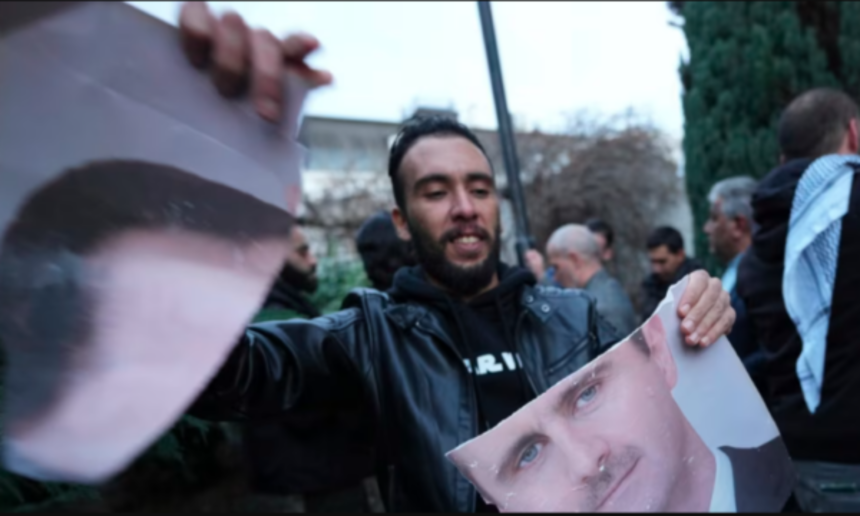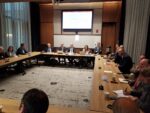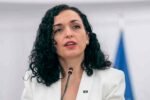Syrian rebels have declared the overthrow of President Bashar al-Assad after they took control of Damascus on Sunday, forcing him to flee and bringing an end to over 14 years of his family’s autocratic rule. This shift also dealt a major blow to the influence of Russia and Iran in Syria—key allies who had supported Assad during critical moments of the conflict.
Syrians flooded the streets of Damascus, celebrating the end of the Assad family’s 50-year iron-fisted rule, following a sudden rebel advance that reached the capital in just a few days. The events have now raised questions about Syria’s future and the broader region.
Crowds gathered in central Damascus waving Syrian flags, scenes reminiscent of the early days of the Arab Spring protests, before they were met with brutal government repression, plunging the country into nearly 14 years of civil war.
Others looted the presidential palace and the Assad family residence after President Bashar al-Assad and other high-ranking officials fled, with their whereabouts currently unknown. Russia, a close ally, confirmed that Assad had left the country following negotiations with the rebel groups and had given instructions for the peaceful transfer of power.
Syrian state TV broadcasted a video statement on Sunday from a rebel group claiming that Assad had been deposed and that all prisoners had been released. They urged citizens to safeguard the institutions of the “free Syrian state.”
The rebels announced the release of prisoners from the infamous Saydnaya prison, where human rights organizations report that thousands were tortured and killed.
Rebel commander Anas Salkhadi, who later appeared on state television, attempted to reassure Syria’s religious and ethnic minorities, saying, “Syria is for everyone, without exception. Syria is for Druze, Sunnis, Alawites, and all sects.”
As Syrians celebrated, Prime Minister Mohammad Ghazi al-Jalali called for free elections and said he had been in contact with rebel leader Abu Mohammed al-Golani to discuss managing the transition period, marking a significant development in shaping Syria’s political future.
“I honestly say, I was surprised by how fast this happened. I didn’t expect it would take only ten days for rebels from Idlib to reach Damascus. But it was a major move. Iran and Russia have been weakened by these developments because Assad has been their main ally for decades. I think Russia is open to negotiations with al-Golani and Turkey. Iran, I think, will have a harder time,” said Andre Banks, a Syria expert at the Giga Institute for Middle Eastern Studies in Hamburg.
“The Assad regime was rotten from the inside and corrupt, like a mafia state. There was very little true loyalty. So, the entire system was held together by fear. And then we have, of course, Russia. In recent days, Russia has pulled its ships from the Tartous military base. Also, senior military personnel have withdrawn. Iran has provided some security, but they were no longer offering assistance. Hezbollah has been significantly weakened and withdrew from some positions around Aleppo due to the conflict with Israel since October 7. All these elements contributed to Assad’s weakening power,” said Carsten Wieland, a former senior advisor to the UN Special Envoy to Syria.
The end of Assad’s rule delivers a significant blow to Iran and its allies, already weakened by more than a year of conflict with Israel. Now, the rebels face the difficult task of overcoming the huge challenges in a war-torn country still divided by armed factions.
Turkey-backed opposition fighters are clashing with Kurdish forces allied to the U.S. in the north, and the Islamic State group remains active in some remote areas.
The rebels are led by the group Hayat Tahrir al-Sham (HTS), which has its origins in al-Qaeda and is considered a terrorist organization by both the U.S. and the UN.
Abu Mohammed al-Golani, a former al-Qaeda commander who severed ties with the group years ago, says he supports pluralism and religious tolerance. He leads the largest rebel faction and is ready to work for the country’s future leadership. /VOA







